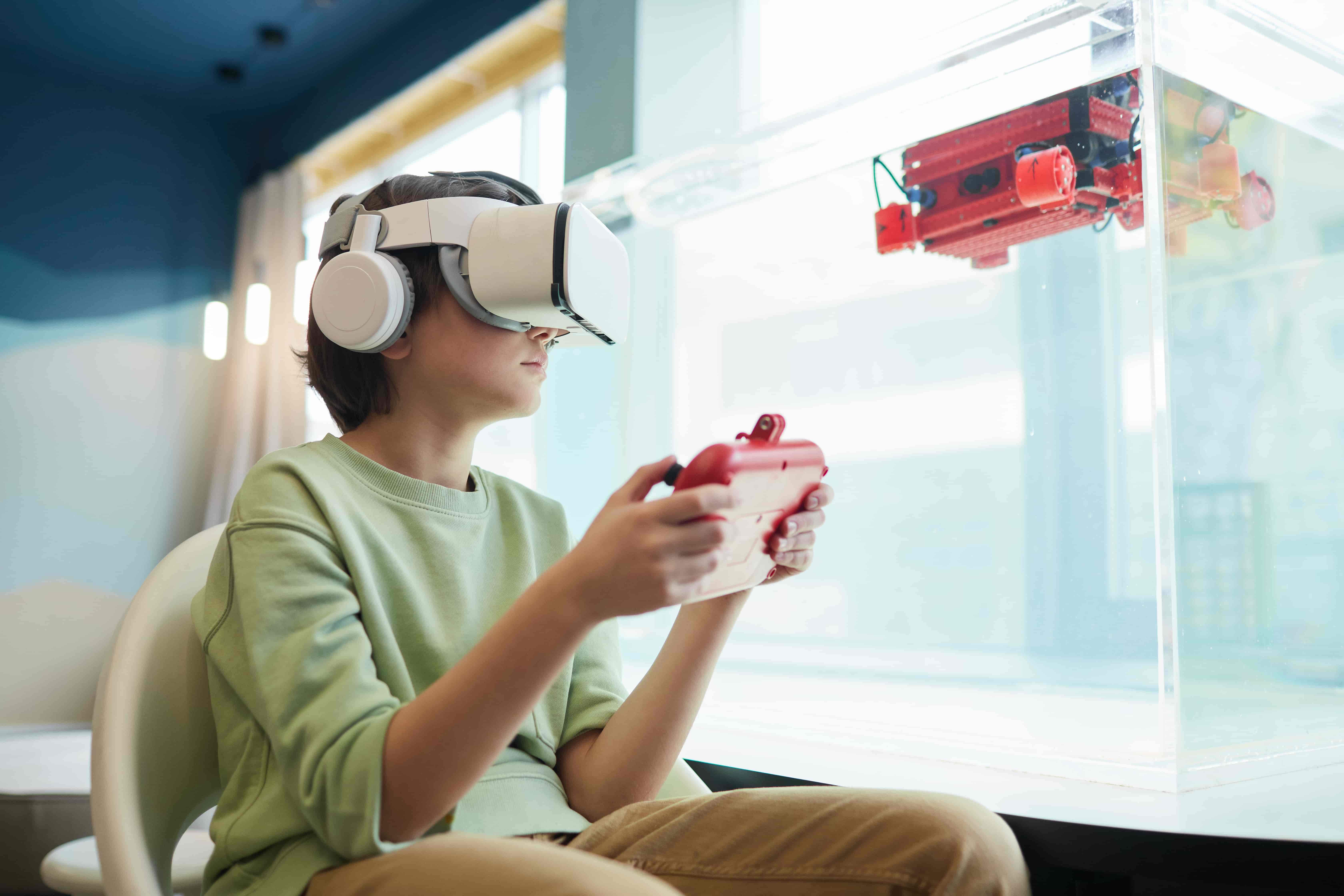
Are video games wreaking damage to our health? As the gaming industry continues to surge in popularity, it's hard to deny the fun and immersive experiences they offer. However, behind the captivating screens lies a growing concern about the potential negative impact of gaming on the well-being of our youth. With millions of children spending countless hours each week engrossed in their favorite games on computers or consoles, what are the hidden risks of this digital obsession?
Behind the captivating screens and exhilarating experiences, there lies a growing concern about the potential negative impact of gaming on the well-being of our youth.
Recent statistics on teen video game addiction are concerning. Approximately 11-12% of boys and 6-7% of girls have developed a dependency on video games, indicating a gender difference in the popularity of this issue. Even more alarming, around 4% of children fall into the category of extreme game addicts, spending 50 hours or more per week indulging in gaming activities.
The Hidden Dangers of Excessive Video Game Playing
While gaming can be a fun distraction or hobby, certain physical and psychological health risks come from too much gaming. We discuss the main physical harms in this post.
Excessive gaming can disrupt sleep patterns, leading to sleep deprivation and insomnia. The stimulating nature of video games can make it difficult for players to unwind and relax before bedtime, hindering their ability to fall asleep easily. Sleep deprivation not only affects overall well-being but also impacts cognitive functions, concentration, and mood.
Sedentary behavior is another significant concern associated with the health effects of too much gaming. Prolonged periods of sitting can lead to various health problems, including obesity, heart disease, and musculoskeletal issues. Players often lose track of time while engrossed in games, leading them to neglect physical activity and regular breaks, further exacerbating these health risks.
Moreover, video games can also have negative effects of videogames on mental health. Excessive gaming has been linked to increased stress, anxiety, and depression, especially when gaming becomes a way to escape real-life problems. The social isolation accompanying intense gaming habits may further contribute to feelings of loneliness and disconnection.
An effective tool that can assist gamers in adopting healthier habits is BLiiNK. It's a helpful software tool that gently reminds users to look away from the screen and take short breaks at regular intervals. By incorporating Bliink into their gaming routine, players can reduce the risk of digital eye strain and avoid the detrimental effects of excessive screen time.
From Escapism to Obsession: The Root Causes of Video Game Addiction


Harms of video games are a complex issue that can affect individuals from all walks of life, transcending age, gender, and cultural backgrounds. While gaming can be a source of entertainment and relaxation, for some, it can evolve into an unhealthy obsession that significantly impacts their daily lives and overall well-being.
What are the specific reasons for video game addiction? Video game addiction is a genuine problem that affects millions of people worldwide. There are numerous reasons why someone might become addicted to video games, but here are four of the most common ones:
1. Escapism
Video games can be unhealthy ways to escape reality. The virtual worlds offered by video games provide a captivating and immersive experience that allows players to leave their real-life troubles behind, even if only temporarily. For those facing difficulties in personal relationships, academic pressures, or work-related stress, gaming offers a soothing retreat where they can assume different identities and embark on thrilling adventures. The virtual realm becomes an enticing escape, drawing individuals deeper into the realm of gaming addiction effects.
2. Feelings of neglect
Video games can transform from a source of entertainment into a coping mechanism for those experiencing feelings of neglect or boredom in their daily lives. When individuals perceive a lack of fulfillment or a sense of being undervalued in their real-world experiences, gaming can provide a way to fill the void of emotional satisfaction. The positive feedback and achievements within games can offer a temporary respite from feelings of neglect, leading to a compulsive cycle of gaming as a means of seeking comfort and validation.
3. Mood management
Video games can be addictive because they offer a way to manage moods. For instance, playing a video game can help alleviate stress or provide a distraction during difficult times. Conversely, it can also enhance happiness and relaxation when played in a positive emotional state.
4. Anxiety and neuroticism
Individuals with high levels of anxiety and neuroticism may find video games particularly enticing and addictive. The stimulating and interactive nature of gaming can temporarily distract individuals from their anxious thoughts and provide a sense of control over their virtual environment. This immersive experience can be difficult to break away from, even when it starts to negatively impact their health, social life, and overall well-being.
5. Low self-esteem
Low self-esteem is a significant factor contributing to video game addiction. For individuals who feel inadequate or inferior in comparison to others, video games offer a space where they can take on powerful and competent roles. In the virtual world, they can experience a sense of empowerment and achievement that may be lacking in their real-life experiences. This escape from feelings of inadequacy and the pursuit of success within the gaming realm can lead to an unhealthy attachment to video games, forming the foundation of addiction.
It is important to recognize that harms of video games are a genuine concern, and it goes beyond mere laziness or lack of willpower. Understanding the specific reasons behind the addiction can help individuals and their loved ones address the issue more effectively and seek appropriate support and treatment if necessary.
Fortunately, Bliink offers a powerful solution to assist gamers in adopting healthier habits. By integrating Bliink into gaming routines, users can protect their eye health, improve posture, and reduce the risks associated with prolonged screen time.
BLiiNK: Your Way to Recovery


As part of the journey towards a healthier gaming lifestyle, Bliink can be a valuable tool for reminding gamers to take breaks and maintain moderation. With BLiiNK, you have a powerful tool at your disposal to enhance your gaming experience while protecting your health.
One of the key features of Bliink is its ability to help control your blinking rate and sitting position. This feature effectively copes with digital eye strain and reduces the risk of developing other physical health issues associated with prolonged gaming sessions.
Additionally, BLiiNK encourages users to be mindful of their sitting posture while gaming. Sitting in the same position for extended periods can lead to musculoskeletal issues, including back pain and neck strain. With Bliink's ergonomic tips and exercises, you receive guidance on maintaining a proper sitting posture and performing stretches to alleviate muscle tension. These helpful reminders promote better spinal alignment and reduce the risk of developing physical discomfort during gaming sessions.
The beauty of BLiiNK lies in its seamless integration into your gaming experience. The software operates in the background, offering unobtrusive reminders that do not disrupt your gameplay.
Take the first step towards a healthier gaming lifestyle with Bliink, and experience the joy of immersive gaming without sacrificing your well-being.
Playing It Right: The Optimal Daily Gaming Time
The amount of time a person can spend gaming without encountering issues can vary widely depending on individual factors such as age, overall health, lifestyle, and personal responsibilities. There is no one-size-fits-all answer to this question, but some guidelines and recommendations have been proposed by experts and organizations.
For children and adolescents, the American Academy of Pediatrics (AAP) recommends that screen time, including gaming, should be limited to:
- For children aged 2 to 5 years: 1 hour or less per day of high-quality programming.
- For children aged 6 years and older: Consistent limits on the time spent using media, and the types of media used, to ensure adequate sleep, physical activity, and other healthy behaviors.
For adults, there is no strict recommendation, but it's essential to balance gaming with other responsibilities and activities to maintain a healthy lifestyle. Moderation is key, and individuals should be mindful of not letting gaming consume excessive amounts of time that could interfere with work, relationships, or self-care.
It's also important to pay attention to any signs of negative consequences from gaming, such as neglecting responsibilities, social withdrawal, declining physical health, or changes in mood and behavior. If these issues arise, it may be a signal to cut back on gaming time and seek a healthier balance.
Ultimately, the goal should be to enjoy gaming as a form of entertainment and relaxation while maintaining a well-rounded and fulfilling life outside of gaming. Each person's gaming habits will be different, and it's crucial to find a balance that works for your individual needs and circumstances.
Gaming for Knowledge: How Video Games Prepare You for Real-Life Challenges


While debates often surround the potential negative impacts of gaming, it is crucial to acknowledge the positive sides of this thriving industry. Video games offer much more than just amusement; they can be powerful tools for personal growth, skill development, and fostering connections.
So, let’s explore the numerous ways video gaming can have a positive impact on a person.
Elevating Empathy by Playing Another Character
Video games often immerse players in rich narratives and diverse characters. As players take on the roles of these characters, they get the chance to see the world from different perspectives, cultures, and backgrounds. This experience can lead to an increase in empathy and understanding of others' experiences and struggles. By empathizing with fictional characters, players may develop greater compassion and become more open-minded in their real-world interactions.
Fast Adaptation to Stressful Events
Many video games present players with challenging situations and high-pressure scenarios. Successfully navigating through these virtual challenges requires quick decision-making, adaptability, and resilience. As players face and overcome these virtual stressors, they can develop a heightened ability to handle stress in their daily lives. This skill of staying composed under pressure can be transferred to real-life situations, helping individuals cope with stressful events more effectively.
Enhanced Problem-Solving Skills
Video games often present players with puzzles, quests, and obstacles that require creative problem-solving to overcome. Players must analyze information, think critically, and devise innovative solutions to progress in the game. These problem-solving experiences can transfer to real-world situations, empowering players to approach challenges with a more resourceful and solution-oriented mindset.
Gaming holds numerous positive attributes that go beyond entertainment. When approached responsibly and with balance, gaming can be a constructive and rewarding activity that enriches lives and contributes to personal growth and development.
Final Words
In conclusion, the booming popularity of video games comes with a growing concern about their potential negative impact on the well-being of players, particularly the youth. Excessive gaming can lead to physical and psychological health risks, including disrupted sleep patterns, sedentary behavior, and negative effects on mental health.
Understanding the root causes of video game addiction, such as escapism, feelings of neglect, mood management, anxiety, and low self-esteem, can help individuals and their loved ones address the issue more effectively and seek appropriate support if needed.
It is crucial for gamers to strike the right balance and moderate their gaming time according to individual needs and responsibilities. Following guidelines from trustworthy organizations and being mindful of the potential negative consequences can help players enjoy gaming in a way that enhances their overall well-being and happiness. By playing it right, you can unlock the true joy of gaming while protecting your health and enjoying the captivating virtual worlds responsibly.
Discover the advantages of BLiiNK, a revolutionary software solution that promotes improved sitting posture and eye health. With Bliink, you can enjoy enhanced eye comfort, increased productivity, and better digital habits!
